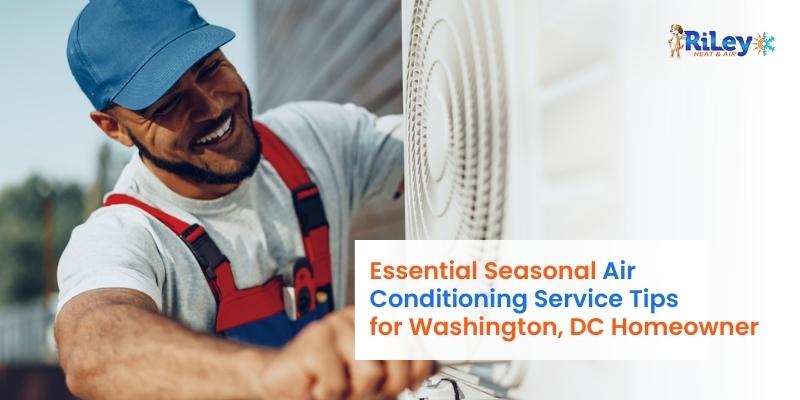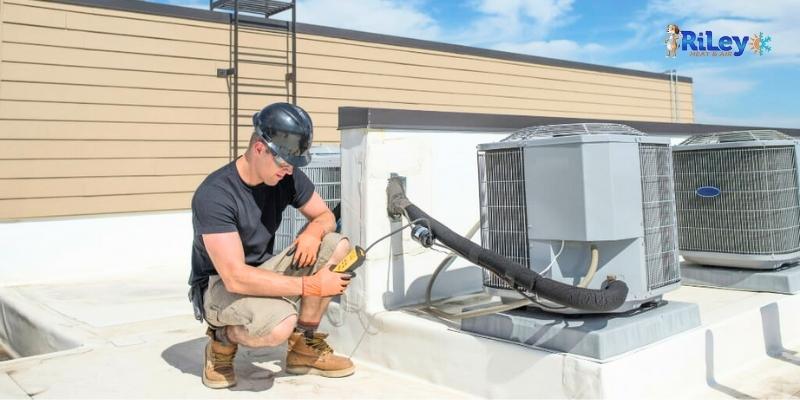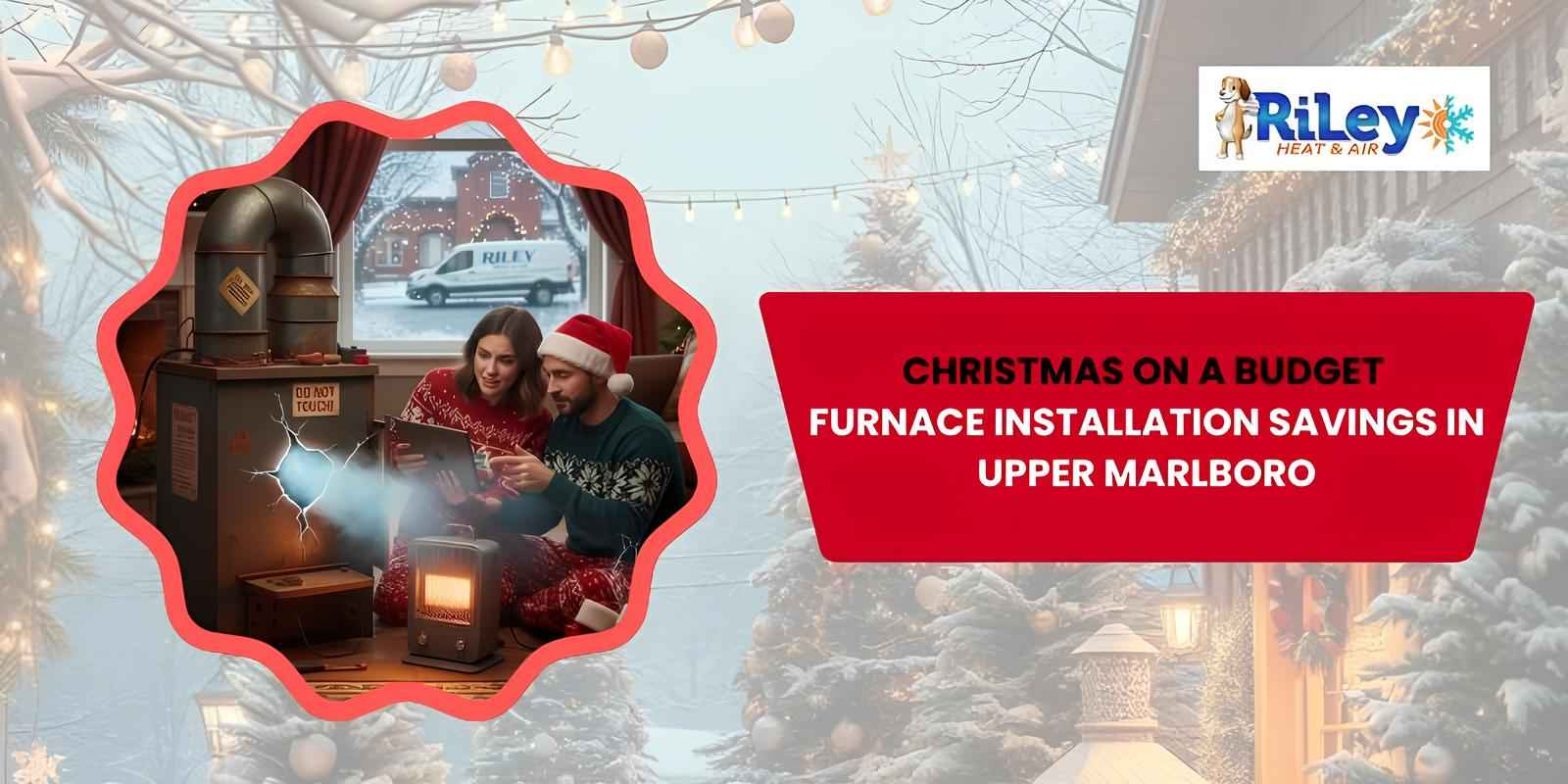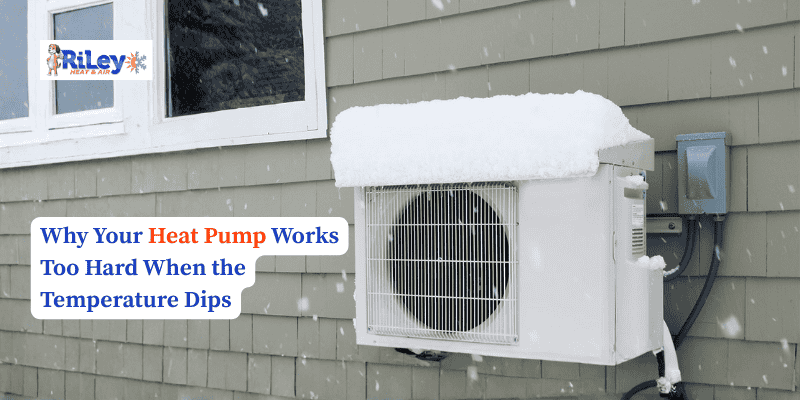
Seasonal Air Conditioning Service Tips for Washington, DC Homeowners
In Washington, DC, indoor air pollution levels can be higher than outdoor conditions, contributing to health issues. Proper maintenance of air conditioning units is essential to preventing these risks while optimizing system performance and reducing energy consumption. For this reason, follow the air conditioning service tips in this article.
Seasonal Air Conditioning Service Tips for Washington, DC Homeowners
The varying seasons common to Washington, DC, require adequate air conditioning service. This is to prevent issues that may arise due to poor air conditioning. By following these service tips, you can improve your home's air quality and achieve substantial savings on cooling costs:
1. Replace Air Filters
Air filter replacement is essential for both energy efficiency and indoor air quality. By maintaining a clean filter, you can reduce your cooling costs. A clogged filter can significantly impede your AC unit's performance. To prevent this, inspect your filter monthly. Most filters become saturated with dust and allergens within 90 days, but this can occur as quickly as 30 days.
To check the filter's condition, hold it up to a light source. If light cannot pass through, it is time for a replacement. Ensure the new filter matches the dimensions of the old one to avoid damaging your AC unit. If you encounter difficulties during the AC installation process, it is advisable to seek professional assistance. By prioritizing air filter maintenance, you contribute to lower energy consumption, reduced cooling expenses, and a healthier indoor environment.
2. Check the Thermostat

The thermostat serves as the command center for your home's cooling system, regulating indoor temperature to your desired home comfort level. When your air conditioner ceases to function, the thermostat should be the initial point of inspection. Ensure the thermostat is positioned so that the temperature aligns with your desired climate. Incorrect settings can hinder the air conditioner's operation.
Additionally, confirm that the thermostat is receiving adequate power. Battery-operated models may require fresh batteries, while wired thermostats might have a disconnected power supply. By setting realistic temperature settings and implementing programmable features, you can significantly reduce your energy consumption without compromising comfort.
3. Tighten Electrical Connections
Your air conditioner's efficiency and safety depend on proper electrical connections. While your thermostat is a key component, several other electrical parts contribute to your system's overall performance. After verifying the thermostat's functionality, it is essential to inspect all electrical connections within your AC unit.
Moreover, there is the need to always prioritize safety by switching off the power supply before working on any electrical components. To protect yourself, wear rubber gloves and use insulated tools. If you are uncomfortable working with electricity, seek the services of a qualified technician. Professional AC maintenance can identify and tighten loose connections.
4. Inspect Cooling Coils for Ice or Frost Buildup
Excessive ice formation on evaporator coils can significantly impact your air conditioning system's efficiency and longevity. When the coils become overly cold, surrounding moisture condenses and freezes, affecting airflow and potentially damaging the compressor. A primary cause of this issue is refrigerant leaks.
To maintain optimal system performance and reduce energy costs, inspect your evaporator coils at least monthly during the fall and winter seasons. Early detection of ice buildup is essential. If ice forms, immediately switch off the unit and allow it to thaw completely. Subsequently, clean the coils thoroughly and examine for obstructions like debris or blockages.
5. Inspect the Refrigerant Lines

Your air conditioner's cooling efficiency depends on the proper functioning of refrigerant lines connecting the outdoor condenser and indoor air handler. If your system is operating but producing warm air, it may indicate a blockage or leak in these lines. For your safety, avoid handling these lines directly.
Furthermore, visually inspect the tubes linking the outdoor condenser and compressor. If you notice ice formation on these lines, immediately turn off your air conditioner at the thermostat and switch the fan to the "on" position. This helps prevent further damage by allowing the system to defrost before professional AC service.
6. Maintain Your AC Unit Level
A stable foundation is crucial for efficient air conditioner operation. Ground shifting can lead to unit misalignment or disconnection, resulting in decreased cooling efficiency and potential system damage.
To ensure your air conditioner operates at peak performance and helps maintain indoor air quality, verify that the unit is level and securely placed on a flat surface. While padding can be used, it is vital to secure your AC with rocks or concrete to prevent shifting.
7. Clean Your Evaporator
The evaporator coil is a critical component for optimal home cooling and energy efficiency. Located within your air handler or attached to the furnace, this component absorbs warm air that facilitates a comfortable indoor environment. Regular inspection of the coil is essential for maintaining peak performance and preventing costly AC unit repairs.
To conduct a basic inspection, shine a light on the coil to identify any punctures, bends, or cracks. If damage is detected, promptly contact a qualified AC technician. Leaks in the coil can result in refrigerant loss, compromising system efficiency and potentially causing further damage.
8. Seal Leaks and Insulate the Attic
Inefficient insulation and air leaks can significantly impact your home's indoor comfort and energy consumption. When your home is inadequately sealed, cool air escapes while hot air infiltrates, forcing your AC system to work overtime. This increased strain will increase your cooling costs and also compromise indoor air quality.
To enhance your home's energy efficiency, conduct a thorough inspection of windows and doors for air drafts. Seal any gaps identified with weatherstripping or caulking, readily available at your local hardware store. Furthermore, insulating your attic effectively prevents heat transfer, maintaining a cooler interior environment.
Conclusion
Properly maintaining your air conditioning system is crucial for ensuring optimal performance, enhancing indoor air quality, and minimizing energy costs in the Washington, DC, area. By following these essential service tips, you can extend the lifespan of your AC system, improve home comfort, and contribute to a healthier living environment.
Tags :






